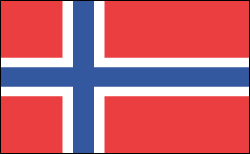Norway History


The World Wars and 20th Century Norwegian Politics
When World War I broke out, Norway joined Sweden and Denmark in a decision to remain neutral and to cooperate in the joint interest of the three countries. In World War II, Norway was invaded by the Germans on April 9, 1940. It resisted for two months before the Nazis took complete control. King Haakon and his government fled to London, where they established a government-in-exile. Maj. Vidkun Quisling, who served as Norway's prime minister during the war, was the most notorious of the Nazi collaborators. The word for traitor, quisling, bears his name. He was executed by the Norwegians on Oct. 24, 1945. Despite severe losses in the war, Norway recovered quickly as its economy expanded. It joined NATO in 1949.
In the late 20th century, the Labor Party and the Conservative Party seesawed for control, each sometimes having to lead minority governments. An important debate was over Norway's membership in the European Union. In an advisory referendum held in Nov. 1994, voters rejected seeking membership for their nation in the EU. The country became the second-largest oil exporter after Saudi Arabia in 1995. Norway continued to experience rapid economic growth into the new millennium.







